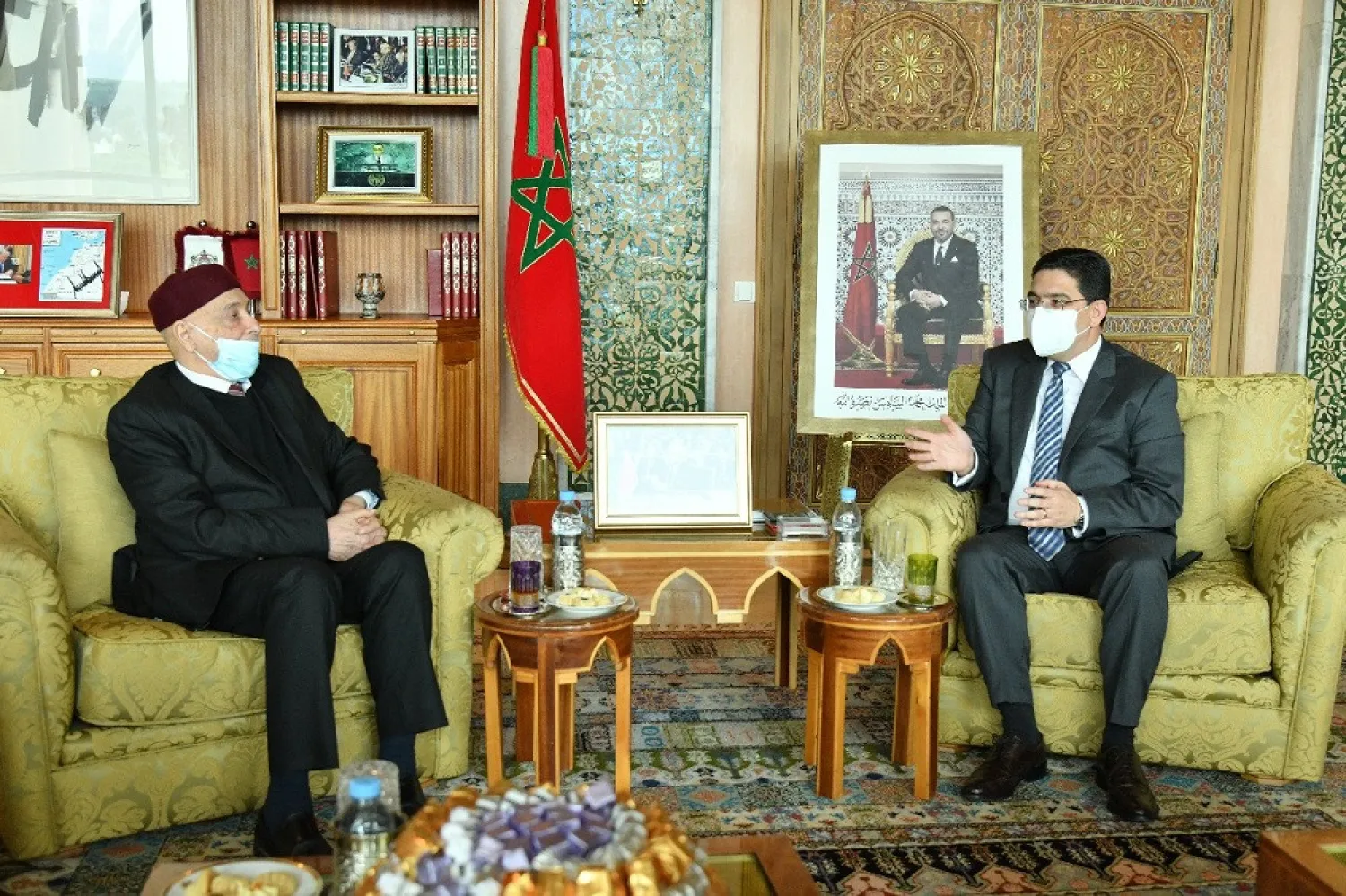Three Turkish military cargo jets landed in bases belonging to the Government of National Accord in Libya as political efforts continued to form a new cabinet.
According to Fightradar24, the aircraft landed at the Watiya and air force academy in Misrata city, hours after Prime Minister-designate Abdulhamid Dbeibeh pledged that the maritime deal signed between the GNA and Ankara will not be annulled.
This marks the first time such flights arrive to the GNA since the election of both Dbeibeh and head of the Presidential Council, Mohammed al-Menfi.
Meanwhile, speaker of the east-based parliament, Aguila Saleh paid a visit to Morocco on Friday for talks with Foreign Minister Nasser Bourita.
There is no prior opposition to the government that is being formed by Dbeibeh, he said, adding that quorum at parliament will be met when it is presented to a vote of confidence.
It has yet to be decided whether the legislature will meet in Sirte or at its Tobruk headquarters.
“We want the formation of a smaller cabinet, comprised of experts,” Saleh said, stressing that the ministers must represent Libya’s three main regions.
Bourita, for his part, said the speaker’s visit was significant given the important role parliament has played in pushing forward political efforts in Libya.
Dbeibeh was also expected in Morocco, but he postponed the trip due to his preoccupation with internal affairs, said Libyan sources.
Prior to heading to Rabat, Saleh had held talks on Thursday with an Egyptian delegation that had paid a surprise trip to Libya.
The speaker’s office said that meeting was part of “ongoing preparations to form a national unity government.”
Meanwhile, sources said the Dbeibeh’s failure to submit a cabinet lineup is due to disputes over sovereign portfolios. They revealed that disputes remain over the ministries of defense, interior and finance.
They speculated that a figure loyal to the Libyan National Army would be nominated for the defense ministry, while current GNA Interior Minister Fathi Bashagha has a high chance of retaining his post.
In remarks on Thursday, Dbeibeh said he was committed to the fair representation of the western, eastern and southern Libyan regions in the cabinet, adding that no one will be excluded, even supporters of the former regime of leader Moammar al-Gaddafi.
Gaddafi’s son, Seif al-Islam, met on Thursday with Russian Deputy Foreign Minister Mikhail Bogdanov. Russia’s Foreign Ministry said talks focused on the latest political developments in Libya, as well as the upcoming elections set for December.









